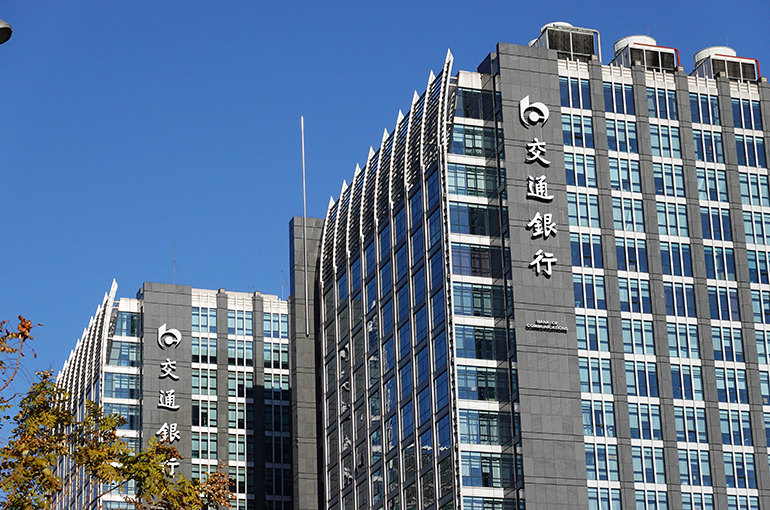 China’s BoCom Is Named a Global Systematically Important Bank
China’s BoCom Is Named a Global Systematically Important Bank(Yicai) Nov. 29 -- Bank of Communications has been recognized as a global systematically important bank, or a lender so big that its failure could trigger a financial crisis, increasing the number of Chinese banks on the list to five.
Shanghai-based BoCom was named as a G-SIB for the first time this year, according to the list released by the Financial Stability Board, an international body that monitors the global financial system, on Nov. 27.
Whether or not banks are selected as G-SIBs is not directly related to their profitability, but is more a reflection of their influence in the global financial system, Li Yunqiao, a senior analyst at Fitch Bohua's financial institutions division, told Yicai. BoCom greatly increased the size of the securities and other financing tools it issued last year, which was the biggest factor behind its addition, Li noted.
Agricultural Bank of China and China Construction Bank were upgraded to first-tier from second-tier, while Bank of China and Industrial and Commercial Bank of China remained second-tier, the list also showed.
The requirement for the total loss absorption capacity of China's G-SIBs will be further increased after the latest changes on the list, said Du Yang, a researcher at the BOC's research institute. ICBC, ABC, BOC, and CCB will face additional capital regulation requirements of 1.5 percent, with that for BoCom being 1 percent, and they must be fulfilled by core tier-one capital, Du added.
The overall additional capital and TLAC gaps at China's big four state-owned banks will be about CNY2.6 trillion (USD367.9 billion) in the first phase in early 2025 under the benchmark assumption of an 8 percent growth in risk-weighted assets, according to a forecast by Fitch China Bohua Credit Ratings. The TLAC gap will be about CNY7.9 trillion in the second stage in early 2028.
BoCom will have a three-year grace period as it was just recognized as a G-SIB. It had a static gap from the TLAC requirement of around CNY400 billion (USD56.6 billion) in the first phase, with a dynamic gap of about CNY700 billion under the benchmark assumption.
Since the 2008 global financial crisis, international regulators have launched a series of regulatory reform measures to address the issue of ‘too-big-to-fail’ banks.
Basel III, an internationally agreed set of measures developed by the Basel Committee on Banking Supervision in response to the financial crisis, first proposed the G-SIBs concept in 2010, with the first list of lenders being announced the year after. In 2017, Basel III suggested additional capital and leverage requirements for G-SIBs.
Being recognized as G-SIBs reflects a bank's importance in global influence and means it will face higher TLAC requirements, Li Yunqiao, a senior analyst at Fitch Bohua's financial institutions division, told Yicai. The Chinese banks on the list are expected to issue conventional capital tools, including preferred stocks, perpetual bonds, and second-tier capital bonds, to supplement their capital given that TLAC tools have not been issued in the country, Li added.
Several banks have been approved to issue large capital replenishment tools since July. ABC was permitted to issue CNY450 billion of perpetual bonds in late July, BOC issued second-tier capital bonds of the same amount in August, and CCB received approval to sell a CNY200 billion second-tier capital bond later that same month. BoCom was allowed to issue CNY140 billion of perpetual and second-tier capital bonds in early September.
Editors: Liao Shumin, Martin Kadiev